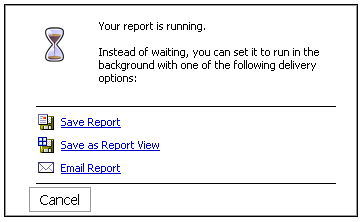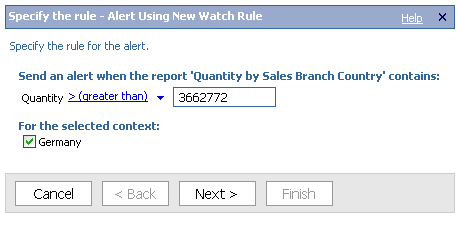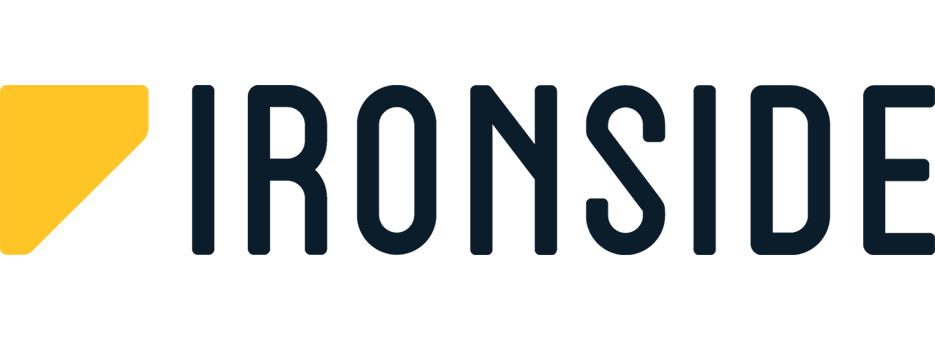7 Steps to Going Green with Enterprise Business Intelligence
Investing in a robust enterprise business intelligence platform like IBM Cognos can be a gateway to improving your organization’s performance in a multitude of ways. One such area of improvement which cannot be dismissed or overlooked is to respond to the call for greater corporate social responsibility. We now live an age where achieving success is no longer measured in simple dollars and cents alone, but also by how large and indelible a mark we leave upon our surroundings in the process. We have already begun to realize the directly proportional relationship between the sustainability of our success and that our own environment.
One of the most effective ways to reduce your organization’s environmental impact while simultaneously slashing operational expenses is to curb corporate paper consumption. Chances are you’ve already gone paperless at home to lighten the daily load on your mailbox, but have you considered doing the same at work? If you’ve already invested in a solution like IBM Cognos, you’ll be pleased to know that you have many weapons at your disposal to help bring about a paperless revolution within your own organization. Following these seven steps to leverage the paper saving features of your IBM Cognos BI platform will have your organization well on their way to a smaller environmental footprint and a lower cost of doing business in no time at all.
1. Electronic Delivery

IBM Cognos offers Email delivery at nearly every turn. Reports can be scheduled to email, run interactively to email, run interactively and then subsequently emailed or even switched to email delivery while you wait for them to complete on-demand. Make sure your users are wise to all of the ways that reports can be electronically delivered from IBM Cognos, and be proactive about changing the culture from printed and hand delivered reporting to using these built in features. If email is good enough for all your monthly statements at home, then why should you be content with the comparatively archaic practice of waiting for those daily sales projections to arrive by inter-office mail?
2. Alerting and Monitoring

A sure-fire way to reducing the number of printed reports in your organization is to simply reduce the number of reports you generate. Using the built in alerting and monitoring features of IBM Cognos, you can configure reports to be delivered to users only when the results of said report meet certain criteria. Take it one step further and use the included but lesser known Event Studio to configure more complex alerting scenarios and event chains. Another obvious benefit to this practice, above and beyond paper savings, is that Analysts and decision makers are markedly more efficient by no longer having to search for exceptions in their daily reports.
3. Self Service Reporting
The notion of achieving true self service reporting is often a fundamental driver and critical measure of success for any enterprise business intelligence initiative. Unsurprisingly, it’s also a major contributor to reduction of paper waste in office settings. Analysts often spend countless hours poring over hundreds of pages of printed legacy reports in search of a single answer to that day, hour or minute’s given business question. Ad hoc self service reporting in IBM Cognos using Query or Analysis Studio allows that same analyst to quickly and efficiently construct a query on the fly, custom tailored to answer their own specific question of the moment, without involving a 3rd party to provide the data. Beyond all of the obvious operational efficiencies to be realized, there is no longer a need to print off reams of paper just to pull the value off of a single row of a report. Users can answer their questions without the use of a printer and in the rare event that printing is necessary, their report is shorter, more concise and uses far less paper to reproduce. Self service doesn’t stop at the perceived Ad Hoc studios either. Savvy report authors can use IBM Cognos’ rich prompting facilities within Report Studio to transform rigid canned reports into dynamic and flexible views that offer all of the same benefits of efficiency.
4. Devise a Content Management Strategy

Sometimes reports are printed and stored purely for archival or compliance purposes. If this is the case, consider that IBM Cognos offer s basic report version retention functionality that can be configured based on number of report occurrences or the age of said report versions. If your archival needs are more extensive, IBM Cognos can be configured to output reports directly to a file system for integration with any existing enterprise content or document management system that is already in place at your organization.
5. Embrace Your Own Mobility and Change Your Meeting Culture
Over the last decade, the corporate standard for personal computing as shifted from the paralyzing desktop form factor to the ever slimming laptop computer. Despite these advancements in technology, we are for some reason still resigned to leaving our laptops docked at our desks and marching off to a colleague’s cube or conference room (most likely equipped with its own projector) with a stack of printed reports that are often outdated by the time we pick them up at the printer. It should no longer be only the IT department seen roaming the building with laptops in hand. Take your most valuable business tool with you to meetings, encourage your colleagues to do so as well (but shut down that email to avoid distractions) and make more efficient use of everyone’s time by getting the most accurate and pointed answers you want, when you want them and without any of the corporate paper waste.
6. Lead by Example
It can be incredibly difficult to bring about cultural change within your organization. As with any major corporate initiative, the best way to go about it is to identify an executive sponsor who can help to champion your campaign for corporate social responsibility from the top down. A great approach could be to present the idea to your organization’s office of strategic planning. Make lowering operational expenses by way of paperless enterprise reporting a corporate strategic initiative. This can bring about change at a departmental level by way of reducing budgets for office supplies.
On an interpersonal level, you should make it your goal to help curb the printer culture by shifting it from the norm into something more taboo. Never underestimate the power of a well placed guilty reminder above the office printer. Additionally you can enlist the help of your HR department to launch a corporate PR campaign (email of course) for educating and informing everyone on the overall effort to reduce paper waste.
7. Measure and Communicate Your Results
As performance management professionals this last step should come naturally, especially if we’ve made our campaign a corporate strategic initiative. Identify key performance indicators such as expenses related to paper and printing supplies. If you report on sensitive information and utilize a document shredding service, plan to monitor this expense as well. Your IT department may even be able to provide you with monthly total page counts and other useful printer statistics. Baseline these numbers (many will be staggeringly high), compile it all into an easy to read dashboard and communicate the results to the masses to show your improvement on a regular basis. Make sure to use the paper calculator to represent your metrics in not just dollars, but all units of measure, so that everyone has a clear understanding of the far-reaching impact of their collective effort.
Next Steps for Reducing Workplace Paper Consumption
The Ironside Group uses IBM Cognos for all of our own internal reporting and we have successfully implemented many of the above strategies to bring paper waste to near zero at our corporate headquarters. Your IBM Cognos platform can be a useful and effective springboard to assist in converting to a paperless workplace, but any program you plan to install will likely go well beyond reporting alone. Refer to the following resources for more detailed information on how to reduce overall paper waste in the workplace.
Smart Paper Policies are Good for Business (NRDC)


